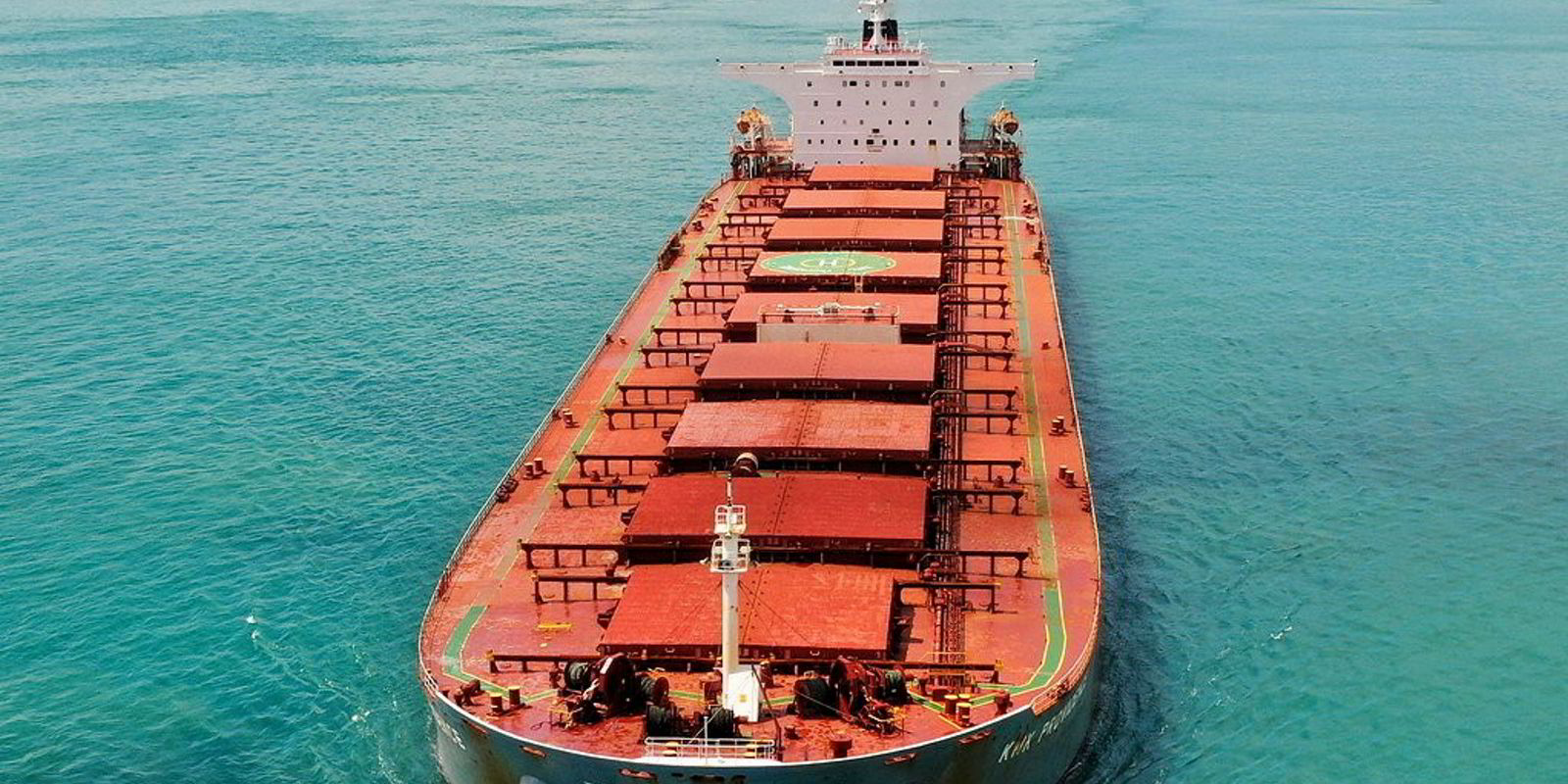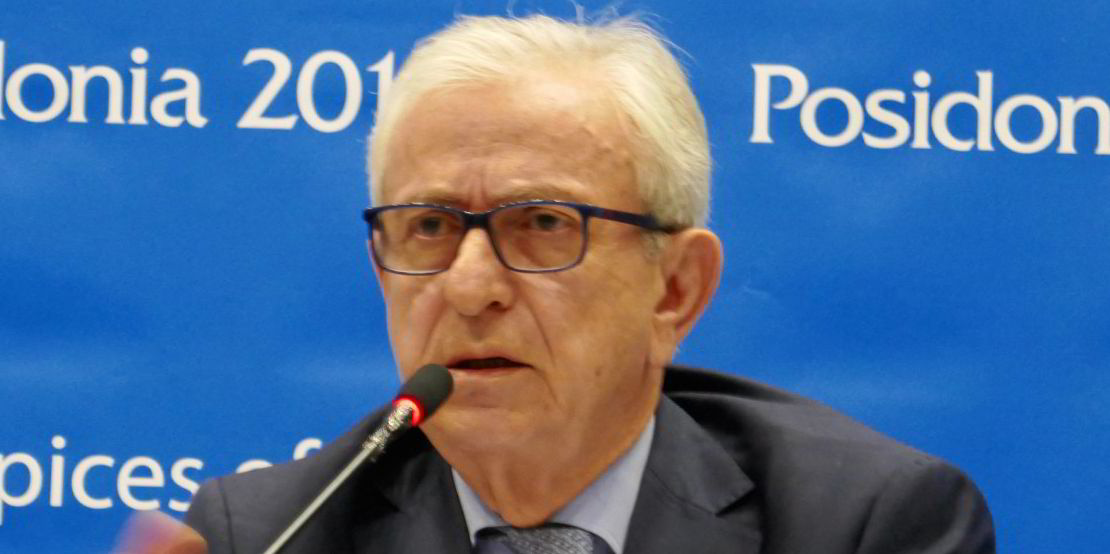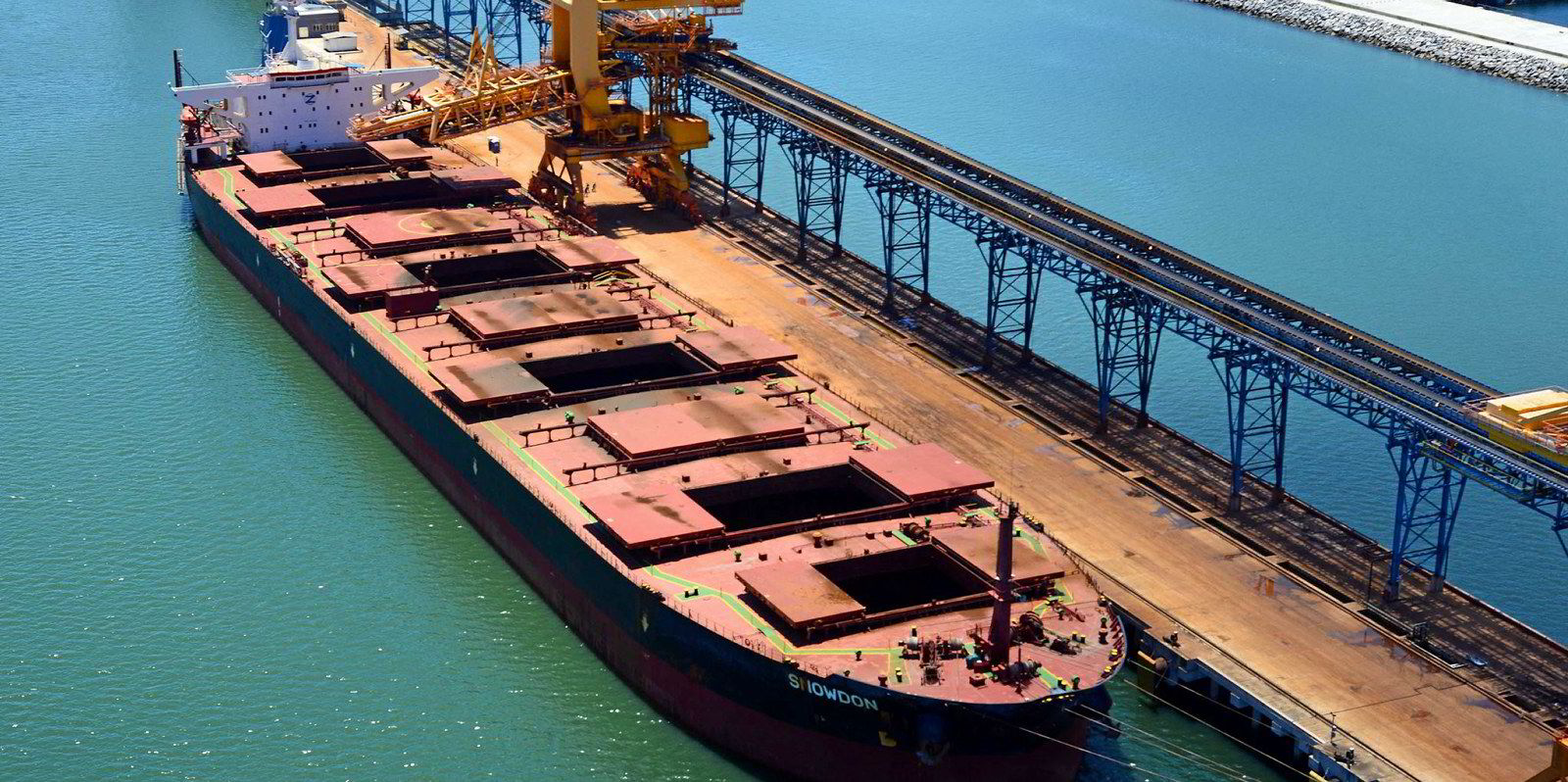The capesize bulker market has been on a downward trend for weeks as China’s real estate troubles mount and port congestion eases, but it should turn around so long as one thing does not happen, market sources said.
The Baltic Exchange’s capesize 5TC spot-rate estimate across five key routes has slid 64% since 18 July to $8,783 on Tuesday — the lowest level since late January.
But Breakwave Advisors, a New York asset manager that runs a dry bulk exchange-traded fund trading platform, is confident that the market will soon do an about-face, provided the second-largest economy on earth does not crumble.
“Our view is that absent a historic collapse in the Chinese economy, upcoming stimulus efforts will provide the catalyst for major restocking of iron ore, and thus a swift jump in dry bulk demand,” it said in a report on Tuesday.
Australian miner Rio Tinto fixed an unnamed capesize on Tuesday and three more to-be-nominated capesizes on Monday to haul 170,000 tonnes of iron ore each from Dampier in north-western Australia to Qingdao, China.
It hired the ships at rates ranging from $7.50 to $7.85 per tonne.
The four vessels are scheduled to take on ore from 30 August to 2 September.
A month ago, Rio Tinto hired an unnamed capesize to move the same amount of ore on the same route at $10.85 per tonne.
China’s floundering real estate sector has essentially stalled as it faces billions of dollars of debt and a mortgage crisis, causing a sharp drop in iron ore demand that has stung the capesize market.
Meanwhile, supply has increased in recent weeks as more vessels are freed from port congestion, the Breakwave analysis said.

Capesize rates for benchmark iron-ore routes from Brazil have also dropped steadily due to China’s wheezing real estate industry.
The freight rate for the C3 voyage from Tubarao to Qingdao has plummeted 38% since 18 July to $20.04 per tonne on Tuesday.
At the same time, the average spot rate for the C14 round-trip leg between Western Australia and China has declined 69% to $6,300 per day.
The capesize market “will suffer some more” as China’s economic struggles continue and the typical summer lull for dry bulk shipping persists, but the EU’s new ban on Russian coal should help it recover, broker Giuseppe Rosano said.






